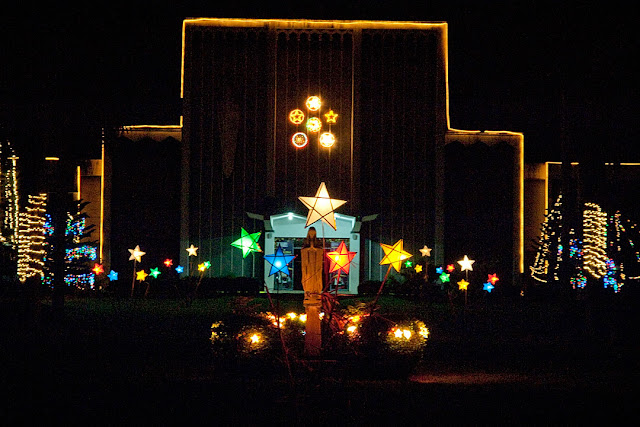As a child what I remember of Simbang Gabi were
puto bungbong, bibingka, tsaa and salabat. Even today I would not consider my
Christmas complete without having tasted puto bungbong and bibingka (and also
castanas).
When I was in elementary, I used to go to
the Parish of the Sacred Heart (Sta. Mesa) for Simbang Gabi. One early morning
on my way to church, I saw a man who I thought was making “wee-wee” against the
wall of Burgos Elementary School. As I was passing by him, I heard him muttering
to himself but loud enough for me to hear him how sorry he was for having been
an irresponsible husband and father to his wife and children and how he was
going to change. I was sure he was drunk.
When I was a student of theology, I
accompanied one of our new priests to celebrate Simbang Gabi in Lower Bicutan.
We were riding in an “owner-type” jeep. As we drew near the chapel, fire
crackers were set off. They were too near. Back at the seminary after the Mass,
I took off my cassock and saw some small burnt marks at the back. Of course, I
was upset!
Simbang Gabi is known also as Misa de Gallo
and Misa de Aguinaldo. Alejandro Roces states that the correct name for the
Christmas novena Masses was Misa de Aguinaldo. It was called thus because the
novena Masses served as the people’s gift to Jesus and Mary for Christmas. Misa
de Gallo would really be the Christmas Midnight Mass. But today we prefer to
use Simbang Gabi for both the dawn Masses and the “anticipated” evening novena
Masses.
In times past in rural areas a brass band
would go around to wake up the people for the Mass. They do the same in some
city parishes. I was told it happened once upon a time at Better Living,
Paranaque. In most places, the parish loudspeakers would do the job. This may
prove an irritant for some. At St. John Bosco Parish, an expat from Holland who
was living at San Lorenzo Village complained to the parish priest (who happened
to be from Holland, too) about the music coming from the loudspeakers of the
Parish. The parish priest calmly told him that this was the Philippines. And
during the nine days before Christmas he should expect this to happen.
The Ordo, the booklet containing “The Order
of Prayer in the Liturgy of the Hours and Celebration of the Eucharist For the
Dioceses of the Philippines” in a note for December 16 states: “Tomorrow begins
the Aguinaldo Masses (white) in honor of the Blessed Virgin Mary, to be
celebrated on the nine days before Christmas for the perseverance of the nation
in faith.”
Especially in view of the fact that we are
in the Year of Faith the Simbang Gabi Masses should become a help and an
impetus to strengthen our faith in Christ.

No comments:
Post a Comment